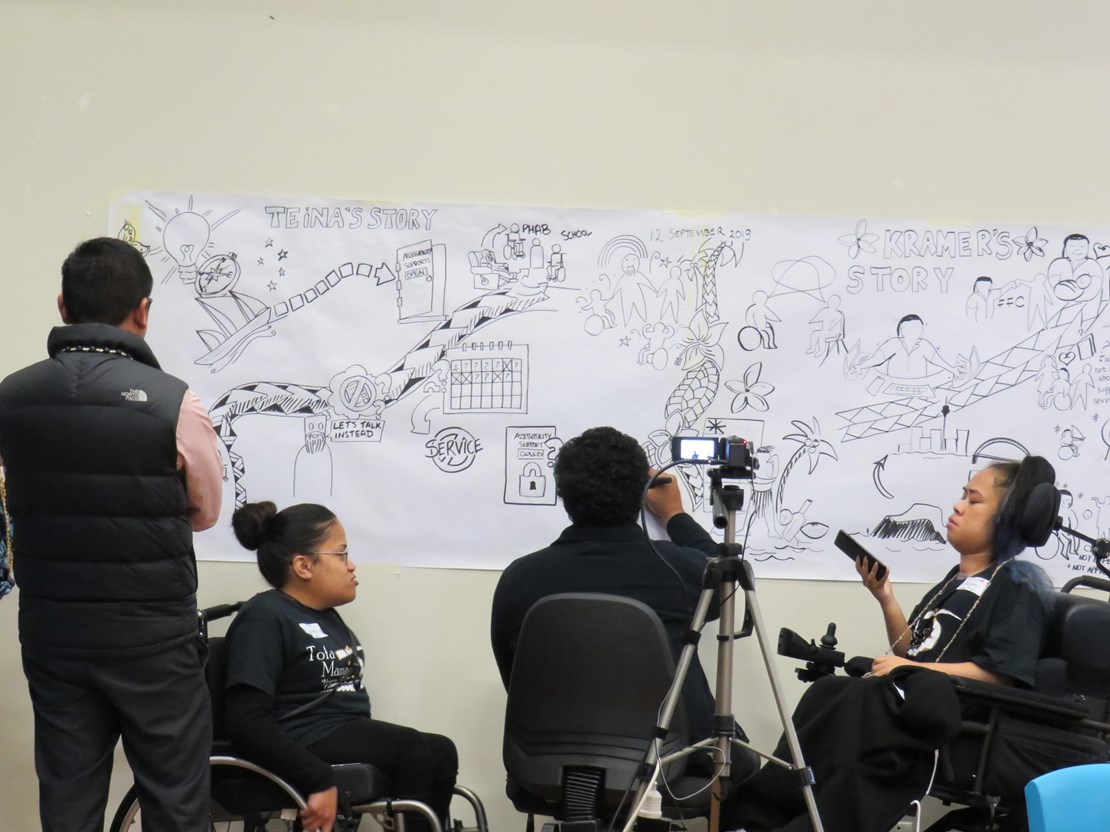Te fono: Engaging with our Pacific communities

Increasing our understanding about how Pacific families experience our service, as well as broadening awareness of disability supports were our key objectives for the largest fono we’ve organised with Pacific communities.
Around 180 Pacific people attended our three-day series of Fono in September, held in three different places in Auckland, making it the biggest talanoa with Pacific disabled people, carers and families in the history of Taikura Trust.
Stories revealing the heart of matter
We invited Pacific individuals and families, some new and others familiar to us. They brought with them their stories about their journey living with a disability or caring for someone with an impairment, navigating health and social services, and how they’re figuring out their relationship with service providers like us.
“Hearing their stories helps Taikura get a better understanding of how Pacific people want to engage and the supports and services that really matter for them,” says Lavinia Lovo, Chair of Tofa Mamao, a collective created to advance the voice of Pacific disabled people and their families.
Key to our initiative was the partnership we formed with Tofa Mamao to organise and host the fono.
The rate of disability among Pacific peoples is about 11 per cent and most Pacific people with disability live in the community and not in any form of residential support. During the talanoa we heard many carers and families talk about their goals to support and care for their family member.
Uplifting the client experience
At the fono, it was reinforced that people experience disability supports through their cultural lens. Cultural factors such as the language used, how they are approached, what disability means in the family, and the appropriateness of support options, will all impact on the success of the engagement, and ultimately whether people will take up the support.
“Cultural factors shouldn’t be a barrier for people to get the support they need from disability service providers,” Lavinia added.
“What we’ve heard is that Pacific people feel that navigating the disability sector is easier if providers are willing to take the journey with them one step at a time. That’s when they feel listened to and they are more open to engaging with providers like Taikura.”
Using PATH to talk about the journey
Our project team thought about how we would hold the talanoa to achieve our objective of engaging with people who came to our fono. We used the graphic design Path technique, which we have been supporting employees to learn and practice. The beauty of the technique and how it was incorporated into the talanoa at the fono, was that is was led by the voice of a Pacific person who used disability supports; it was informal, natural and not a list of questions; and it used pictures to capture the stories. This gave the attendees the chance to listen and observe, and to see us working in a different way to what they had experienced. Our people Lisa Allport and Josh Fuimaono were our PATH illustrators at the Fono. Clients and families also heard the speakers challenge us and saw that we wanted to hear the bad stuff, as well as the good stuff.
When we moved into the round table conversations organised by Pacific nations, people felt comfortable to open up about their expectations and needs. They had the opportunity to discuss their high and lows working with Taikura and navigating the disability sector. The final part was about thinking about solutions to the issues they raised.
Our Te Fono was made possible through the Le Va Faiva Ora Community Innovation Fund 2019 and it was a great opportunity to ensure inclusion and accessibility considerations were at the forefront of planning. These included the involvement of people with disabilities in the planning, establishment and delivery of the project, contributing towards transportation for some participants and ensuring translators for a number of Pacific languages were available throughout the Fono.
If you want to work with us to better understand how people can access health and disability services, drop us an email anytime.
